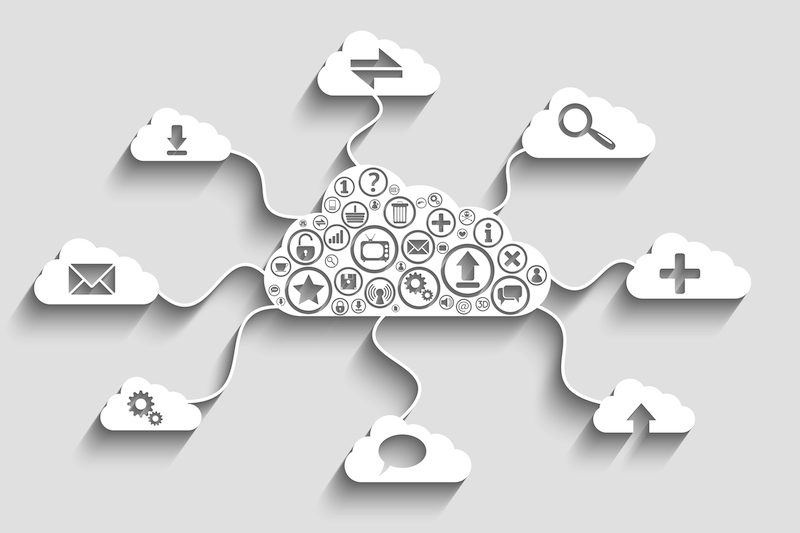The proliferation of hacking and breach attacks in today’s corporate environment has given cloud data integrity a crucial role in building trust and securing protected information.
The storage and processing power of the cloud would go to waste without sufficient protections and policies in place.
With news about top corporations and banks experiencing external hacks and internal leaks spreading through the business world, it’s time to focus on building a data security plan.

Contents
Integrity Overview In the Cloud
There are two central concepts within keeping the integrity of your data. The first is protecting it from external threats and the second is protecting it from internal leaks. Both can be a significant violation of trust and can have significant fallout if things go wrong.
The first kind of data security on the cloud comes down to investing in a large and powerful protection service. This might mean purchasing the software, contracting out to a security company for this now, and renting out access from a cloud provider. This is a cheap and easy method of theft, so many countermeasures have to be able to account for a flexible array of threats.
The second kind requires policies on data access to be strong and effective. A disgruntled employee or one who is trying to make some money might attempt to gain unauthorized access to critical data. Setting the correct permissions for user profiles and creating internal protections limits the number of potential access points to your data.
Consequences of a Breach
The results of a breach of data vary according to the nature of the data and the size of the breach. In general, any data that has been collected from consumers is a major risk, especially if it is financial in nature because customers will lose faith in your ability to safeguard their data. Losing trust is hard to overcome.
Proper handling of a breach means promptly scouring your network for all remaining traces of hacker tools. In nearly all cases, hackers will try to leave behind some remnants of their influence so that they can steal data on an ongoing basis. At the same time, you must notify any and all affected parties of their potential exposure.
In a minor breach, no actual data was stolen, although data was at risk of theft. In a major one, a significant quantity of data was taken. Even a minor breach should be considered a top priority for maintaining integrity because it illustrates a potential hole in security.
Prevent Data Alteration
In addition to simple theft, data is at risk of alteration.
This can include the data itself as well as the management infrastructure for storing, querying or backing up data. Any errors that enter data or its support system are a threat because you rely on that data for effective business.
A healthcare organization that stores patient records or an e-commerce store with customer delivery information cannot afford to have their data corrupted in either a systematic or randomized manner. This can be just as dangerous as a breach that results in theft, and potentially more so if the corruption lasts for a long time without being noticed.
There are several potential sources of data alteration. Technical problems in software or hardware can lead to the creation of errors, disasters can impact data storage, a data-entry mistake can affect individual records, and finally, a malicious threat can alter data deliberately. Each one of these violates data integrity but requires a different response.
The Role of the Cloud In Data Protection
Transferring data storage and management to the cloud has many advantages, and easier integrity is one of them. For example, it is nearly impossible for a natural disaster to cause data alteration or loss because cloud service providers always have redundant storage in hardened data centers.
In addition, the cloud security that providers have is often superior to what is available for a small or medium-sized enterprise. This provides protection from malicious external threats. Backups and the ability to roll back to previous versions insulate the business from human or technical problems.
Cloud data can, therefore, enhance data integrity for everything that is not an internal threat. Internal threats will need to be managed with the classic tools of permissions and protocols for data access.
However, cloud data storage is not always a feasible solution. The most prominent concern is that it involves handing control of the data over to a third party. Depending on the nature of the data, this might violate a contractual agreement, a Terms of Service agreement, or even the law. Especially sensitive information like personal medical records might not be eligible for use or storage on the cloud.
Bottom Line, Secure Your Business Data With the Cloud
Any business that wants to take a proactive approach to cloud security should consider how it interacts with integrity for their specific use cases of data.
In many cases, it will provide additional protection. Whether it is in creating protections for data or responding to an event, improve your focus and stay productive by concentrating on the fundamental principles of security and core values.
Internal and external threats are both serious concerns that escalate the risk of being unprepared. It is no longer acceptable to simply hope that your business will escape the scrutiny of potential attackers.
Don’t wait until you have to recover from a breach or integrity violation to invest in protecting your data. One negative event might be large enough to be an existential threat if you do not take the necessary precautions, so it well worth looking into the possibility of using the cloud for your data services.
